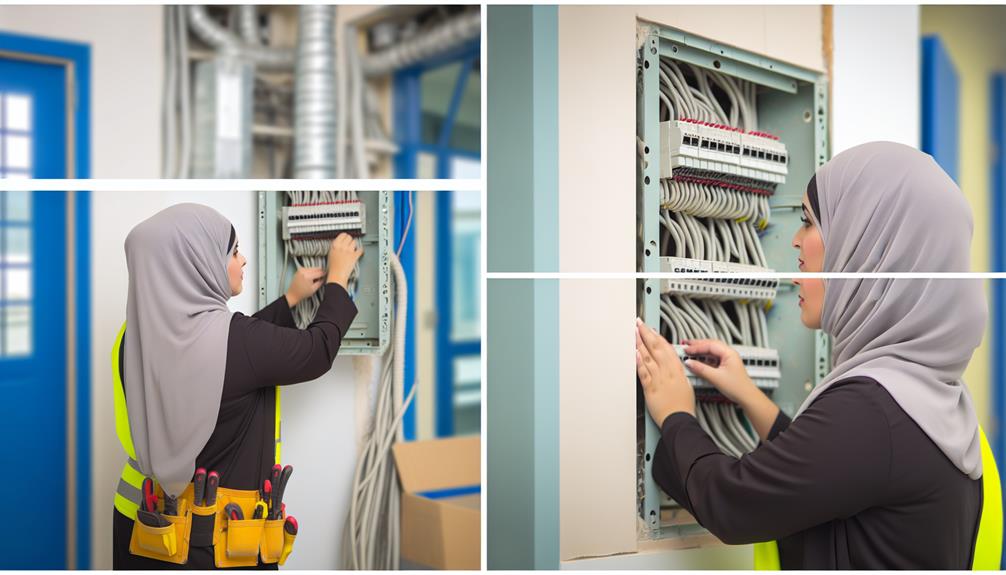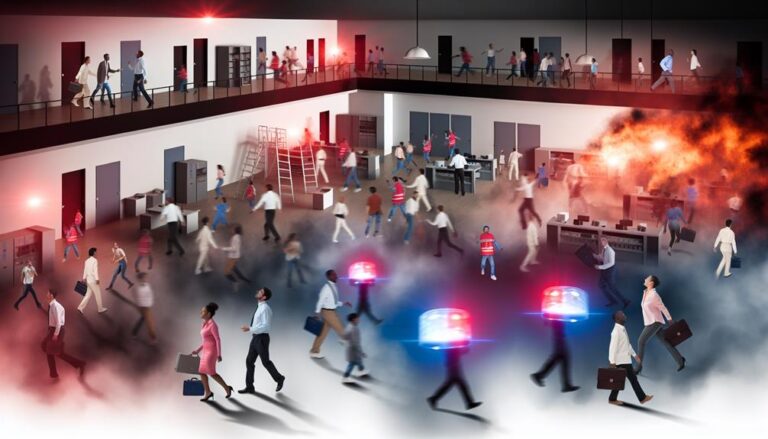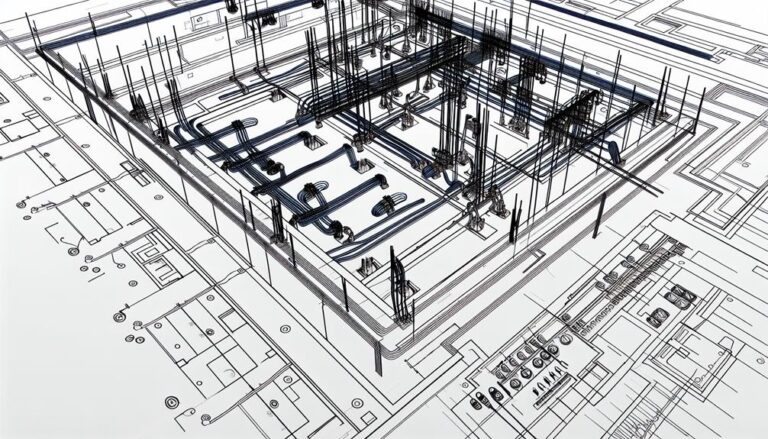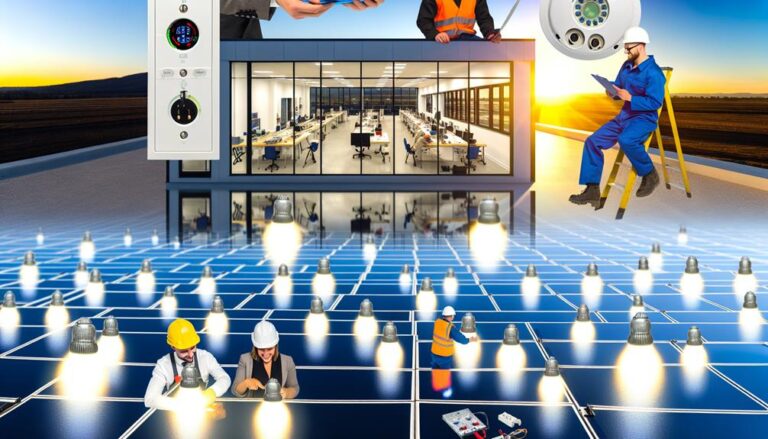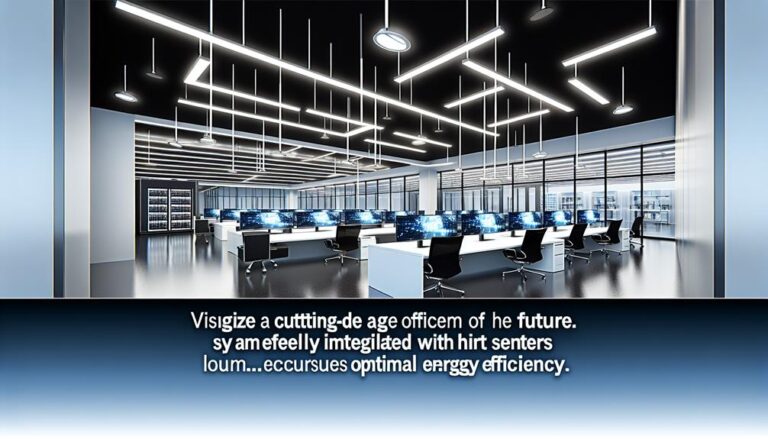Upgrading Commercial Electrical Systems: A Step-By-Step Guide
Are you ready to take your commercial electrical system to the next level?
Upgrade the heart of your business with our step-by-step guide, designed to streamline the process and ensure a successful transformation.
From assessing your current system to selecting the right equipment and hiring qualified professionals, this guide will walk you through each crucial stage.
Don’t miss out on the opportunity to enhance your operations and improve efficiency.
It’s time to power up your business for the future.
Key Takeaways
- Thorough assessment of the current electrical system is necessary to identify issues and evaluate its condition and efficiency.
- Planning and prioritizing upgrades is essential to address areas requiring improvement for enhanced performance and safety, such as outdated wiring and faulty electrical components.
- Selecting the right equipment and materials, such as circuit breakers and wiring, is crucial for optimal functionality and efficiency.
- Hiring qualified professionals for installation and maintenance ensures a successful and high-standard job completion, while avoiding potential dangers associated with improper handling of commercial electrical systems.
Assessing Your Current Electrical System
To accurately evaluate the condition and efficiency of your commercial electrical system, a thorough assessment is necessary. This assessment will provide crucial insights into the overall health of your system and help identify any potential issues that may need to be addressed. It will allow you to make informed decisions regarding any necessary upgrades or improvements.
During the assessment, a qualified electrician will inspect all components of your electrical system, including wiring, panels, switches, and outlets. They’ll check for any signs of wear and tear, loose connections, or outdated equipment. Additionally, they’ll assess the adequacy of your system to meet your current and future power demands.
The assessment will also include a review of your electrical usage and energy consumption. This will help determine if your system is operating efficiently or if there are any areas where energy can be saved. By identifying any inefficiencies, you can implement measures to reduce energy waste and lower your utility costs.
Identifying Areas That Need Improvement
During the assessment of your commercial electrical system, the electrician will identify specific areas that require improvement to enhance the system’s performance and address any potential issues. This step is crucial in ensuring the reliability and safety of your electrical infrastructure. By identifying areas that need improvement, you can proactively address potential problems and prevent costly downtime or accidents.
To help you understand the areas that may need improvement, here is a table outlining common issues and their corresponding solutions:
| Area of Improvement | Potential Issues | Solutions |
|---|---|---|
| Outdated Wiring | Frequent power outages, overheating, and electrical malfunctions | Rewiring the affected areas with modern, high-quality materials |
| Overloaded Circuits | Tripped breakers, flickering lights, and overheating equipment | Installing additional circuits or redistributing electrical loads |
| Inadequate Lighting | Poor visibility, shadows, and safety hazards | Upgrading lighting fixtures and adding task lighting where necessary |
| Faulty Electrical Components | Equipment failure, electrical fires, and safety risks | Replacing faulty components and conducting regular maintenance |
Identifying these areas of improvement allows you to prioritize the necessary upgrades and allocate resources efficiently. It is important to work closely with your electrician to ensure that all identified issues are adequately addressed. By doing so, you can create a safer and more efficient electrical system for your commercial space, providing you with the freedom to focus on your business operations without worrying about electrical issues.
Planning the Upgrade Project
When planning the upgrade project for your commercial electrical system, it’s essential to carefully consider the specific requirements and goals of your business to ensure a successful and efficient implementation.
Start by conducting a thorough assessment of your current electrical system to identify areas that need improvement. Evaluate factors such as capacity, safety, and energy efficiency. This will help you determine the scope of the upgrade and prioritize the necessary changes.
Next, create a detailed project plan that outlines the specific tasks, timelines, and resources required for the upgrade. Break down the project into smaller phases or milestones to make it more manageable. Consider factors such as budget, manpower, and potential disruptions to your business operations. Engage with a qualified electrical contractor who’s experience in commercial electrical system upgrades to assist you in developing a comprehensive plan.
During the planning phase, it’s crucial to communicate with all stakeholders, including employees, customers, and suppliers, to ensure everyone is aware of the upcoming upgrade and any potential disruptions it may cause. Develop a communication strategy that includes regular updates and clear instructions on how to minimize interruptions.
Lastly, ensure that you comply with all relevant electrical codes and regulations. Obtain the necessary permits and approvals from local authorities before commencing the upgrade project.
Selecting the Right Equipment and Materials
Evaluate the specific equipment and materials needed for your commercial electrical system upgrade to ensure optimal functionality and efficiency. Selecting the right equipment and materials is crucial for the success of your upgrade project. By carefully considering your requirements and the specific needs of your electrical system, you can make informed decisions that will result in a reliable and high-performing system.
To assist you in the selection process, refer to the table below. It provides a comprehensive list of equipment and materials commonly used in commercial electrical system upgrades, along with their key features and benefits. Use this table as a reference to identify the components that align with your project requirements.
| Equipment/Material | Key Features | Benefits |
|---|---|---|
| Circuit Breakers | High breaking capacity, reliable operation | Protects electrical circuits from overloads |
| Transformers | Efficient power distribution, voltage regulation | Step-up or step-down voltage as needed |
| Wiring and Cables | Fire-resistant insulation, high current-carrying capacity | Safely transmit electrical power |
| Switches and Outlets | Durable construction, easy installation | Control and distribute power to various devices |
| Conduits and Raceways | Protects and organizes wiring, easy maintenance | Conceals and protects electrical wiring |
| Lighting Fixtures | Energy-efficient, long lifespan | Provides adequate lighting in commercial spaces |
| Power Distribution Units | Modular design, multiple outlets | Efficiently distributes power to various devices |
| Surge Protectors | Protects against power surges, voltage spikes | Safeguards electrical equipment from damage |
| Grounding Systems | Ensures electrical safety, minimizes electrical hazards | Prevents electrical shocks and equipment damage |
Hiring Qualified Professionals for Installation and Maintenance
To ensure the successful installation and maintenance of your commercial electrical system upgrade, it’s essential to hire qualified professionals with expertise in handling complex electrical systems.
Here are three reasons why hiring qualified professionals for installation and maintenance is crucial:
- Expertise: Qualified professionals have the necessary knowledge and skills to handle the intricacies of commercial electrical systems. They understand the complexities involved and can effectively troubleshoot any issues that may arise during installation or maintenance. Their expertise ensures that the job is done efficiently and to the highest standards.
- Safety: Commercial electrical systems can be dangerous if not handled properly. Hiring qualified professionals ensures that all safety protocols and regulations are followed during installation and maintenance. They have the experience to identify potential hazards and take appropriate measures to prevent accidents or electrical failures.
- Cost-effectiveness: While hiring qualified professionals may seem like an additional expense, it can save you money in the long run. Their expertise minimizes the risk of errors or faulty installations, reducing the need for costly repairs or replacements down the line. Additionally, they can recommend energy-efficient solutions that can help you save on electricity bills.

